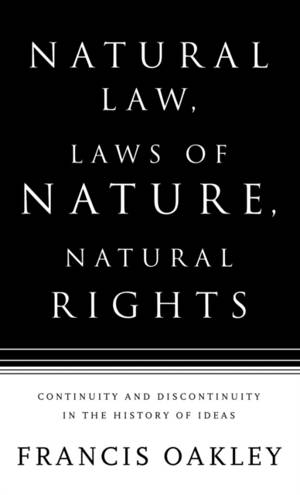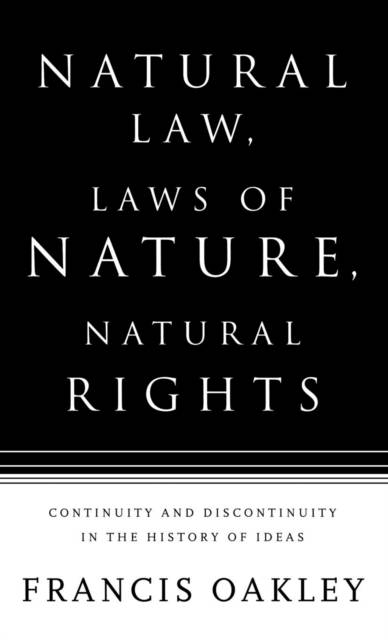
Bedankt voor het vertrouwen het afgelopen jaar! Om jou te bedanken bieden we GRATIS verzending (in België) aan op alles gedurende de hele maand januari.
- Afhalen na 1 uur in een winkel met voorraad
- In januari gratis thuislevering in België
- Ruim aanbod met 7 miljoen producten
Bedankt voor het vertrouwen het afgelopen jaar! Om jou te bedanken bieden we GRATIS verzending (in België) aan op alles gedurende de hele maand januari.
- Afhalen na 1 uur in een winkel met voorraad
- In januari gratis thuislevering in België
- Ruim aanbod met 7 miljoen producten
Zoeken
Natural Law, Laws of Nature, Natural Rights
Continuity and Discontinuity in the History of Ideas
Francis Oakley
Hardcover | Engels
€ 107,95
+ 215 punten
Omschrijving
Choice Outstanding Academic Title 2006 The existence and grounding of human or natural rights is a heavily contested issue today, not only in the West but in the debates raging between "fundamentalists" and "liberals" or "modernists in the Islamic world. So, too, are the revised versions of natural law espoused by thinkers such as John Finnis and Robert George. This book focuses on three bodies of theory that developed between the thirteenth and seventeenth centuries: (1) the foundational belief in the existence of a moral/juridical natural law, embodying universal norms of right and wrong and accessible to natural human reason; (2) the understanding of (scientific) uniformities of nature as divinely imposed laws, which rose to prominence in the seventeenth century; and (3), finally, the notion that individuals are bearers of inalienable natural or human rights. While seen today as distinct bodies of theory often locked in mutual conflict, they grew up inextricably intertwines. The book argues that they cannot be properly understood if taken each in isolation from the others.
Specificaties
Betrokkenen
- Auteur(s):
- Uitgeverij:
Inhoud
- Aantal bladzijden:
- 144
- Taal:
- Engels
Eigenschappen
- Productcode (EAN):
- 9780826417657
- Verschijningsdatum:
- 22/09/2005
- Uitvoering:
- Hardcover
- Formaat:
- Genaaid
- Afmetingen:
- 142 mm x 227 mm
- Gewicht:
- 312 g

Alleen bij Standaard Boekhandel
+ 215 punten op je klantenkaart van Standaard Boekhandel
Beoordelingen
We publiceren alleen reviews die voldoen aan de voorwaarden voor reviews. Bekijk onze voorwaarden voor reviews.









